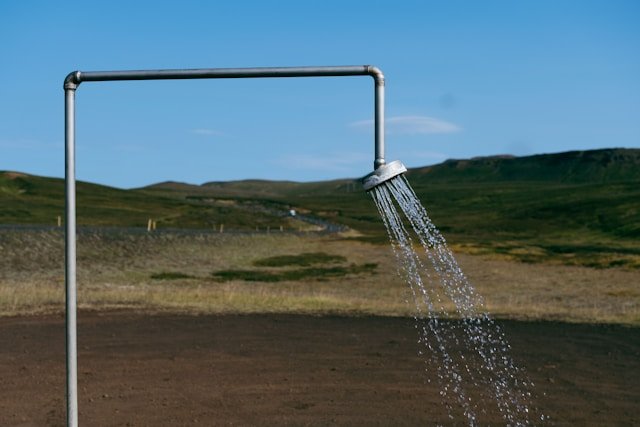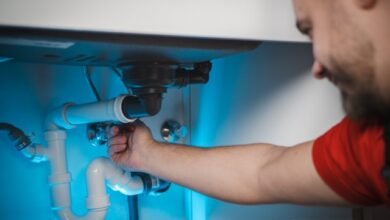Smart Strategies for Efficient Commercial Water Well Management

An Introduction to Managing Commercial Well Waters
The basic infrastructure for businesses that require large reliable water supplies is in commercial water wells because municipal water supply is inadequate or economically not viable in most areas. Well performance and longevity depend on the implementation of cutting-edge technology with tried-and-tested traditional practices in their management systems. Innovative strategies will assist these vital systems in maintaining optimal efficiency during their lifespan. Businesses looking to improve the performance of their water well can engage in customized solutions from the commercial water well service in Raleigh, NC to maximize extraction and monitoring and increase the longevity of their systems. Optimization of commercial water wells has become mandatory following growing global concerns regarding water shortages and sustainable use of resources. Merging modern technology with tried-and-tested best practices assists companies in acquiring uniform water supply while reducing environmental pollution and lowering the cost of operations in the long term. Such an active approach helps secure business operations while supporting greater conservation purposes.
Understanding Water Well Systems
The water well commercial system has sophisticated elements working in harmony in order to achieve system efficiency and operational performance. Well casing stability is maintained while the system relies on pumps for the removal process and pressure systems for smooth flow of water. The well-being and health of users depend on the preservation of water quality standards. Companies can determine compliance with safety regulation through the measurement of pH level and microbial presence as well as minerals. The EPA manual for private water wells is an important tool that offers necessary details regarding the keeping of water quality and system integrity. The information derived from the tools assists companies in creating maintenance plans and pursuing technological advancement for optimum operational function.
Technological Innovations in Water Well Management
The implementation of smart sensors along with automated systems via technology has revolutionized efficiency in water well management operations. Smart sensors allow for real-time monitoring that provides data that aids in proactive management for wells. Companies that use data analysis can project the need for maintenance, thereby being able to solve issues before any large-scale problems occur and hence minimize equipment downtime. Predictive actions result in increased operational performance while extending the life cycle of equipment, hence reducing the total cost of operations in the long term.
Best practices for sustainability and maintenance
Regular inspection coupled with maintenance activities forms the bedrock for sound water health care. The activities get expert handling from professionals who apply contemporary methods and technology equipment while firms outsource the work to experts. Merging the care for the mechanical equipment with the operations of the water well according to environmental standards makes sustainability the prime operating goal. The joint effort facilitates both regulatory compliance and environmental conservation objectives. Companies reap double advantages through sustainability since the approach maximizes environmental conservation while ensuring their water sources remain pure and unlimited.
Advantages of Effective Water Well Management
The use of effective management practices brings many benefits beginning with significant cost savings for operations. Commercial wells function at an uninterrupted level with few outages through risk minimization and data-driven maintenance practices. Good management practices build sustainable operations that align with the increasing corporate emphasis on environmental responsibility and social responsibility. Responsible water resource management helps companies become forward-looking pioneers who solve global environmental challenges.
Discussing Shared Problems and Solutions
Careful administration of a commercial well does not prevent scaling and sedimentation and contamination that result in operational challenges and increase expenditure on maintenance. Organizations must blend new solutions with expert advice in order to remove such issues. Regular descaling procedures coupled with filter systems yield substantial benefits in such issues. Organizations must remain informed about new water well administration solutions and equipment that enable them to prevent issues in an active manner.
Future Trends and Practices
Artificial intelligence and machine learning technology will increasingly contribute positively to the water well management in the years ahead as it improves water conservation strategies. Predictive maintenance will be enhanced through the technology, providing data-based insights in order to optimize the practices of water extraction as well as usage patterns. The innovations in the industry will lead to sophisticated systems that increase the sustainability and efficiency in water resources while satisfying increasing needs.
Conclusion
There are several benefits and strategies for commercial water well management through innovative practices. Companies, for instance, that adopt new technology or follow rigid schedule-based maintenance will experience successful, reliable, and lasting supplies of water. Such practices enable firms to increase the performance of operations and help preserve water resources while ensuring the care of the environment. The new water management solutions show clear potential for building a sustainable future.




